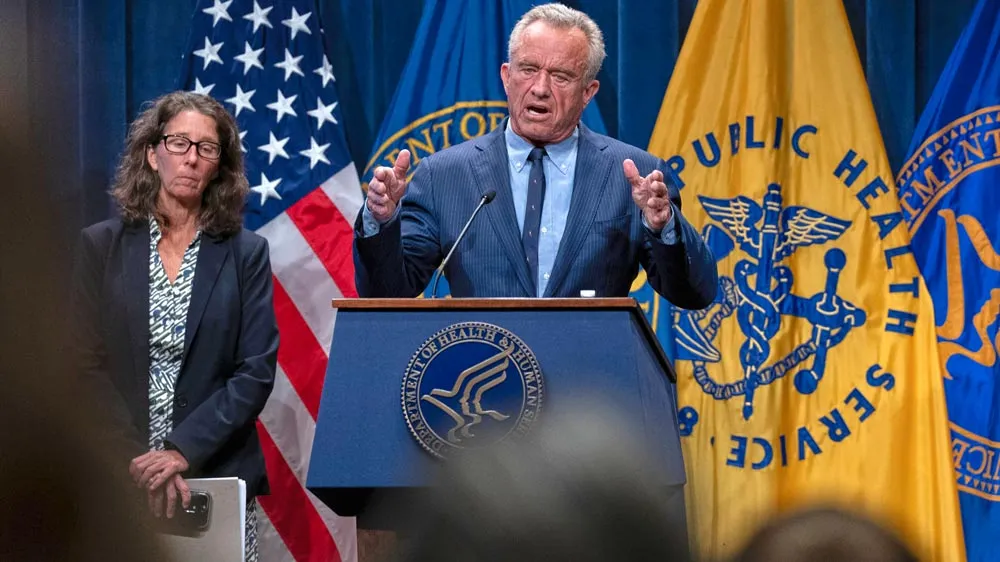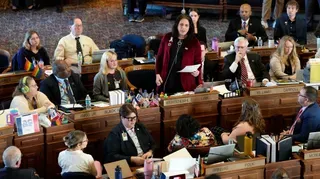February 13, 2014
Ky. Gay Marriage Ruling Looks to Precedents
Jason St. Amand READ TIME: 4 MIN.
A federal judge has ruled that Kentucky must recognize same-sex marriages performed in other states, pointing not only to recent decisions that have struck down bans in other states but also to older rulings on a person's right to marry.
The state's ban treated "gay and lesbian persons differently in a way that demeans them," U.S. District Judge John G. Heyburn wrote Wednesday. While the case dealt with out-of-state marriages, it does not require the state to perform same-sex marriages.
Heyburn cited a long line of cases going back to the legalization of mixed-race marriages and mentioned recent same-sex marriage decisions in nine other states, including Hawaii and Utah. But he mainly relied on the U.S. Supreme Court's 2013 ruling striking down a section of the federal Defense of Marriage Act, on which Kentucky's same-sex marriage amendment had been based.
The judge also pointed to older rulings dealing with race and gender, noting that bans on interracial marriage, segregation and restrictions on women had been cited in the past as keys to a more stable society. But courts gradually did away with those restrictions.
"Each of these small steps has led to this place and this time, where the right of same-sex spouses to state-conferred benefits of marriage is virtually compelled," wrote Heyburn, who took a seat on the federal bench in 1992 after being appointed by President George H.W. Bush with the backing of U.S. Sen. Mitch McConnell, both Republicans.
The ruling comes on the heels of decisions by federal judges in Utah and Oklahoma that struck down gay marriage bans in those socially conservative states. A case is also awaiting a federal judge's decision in Virginia. A victory there would give gay marriage supporters their first foothold in the South.
"A lot of couples have been suffering in silence for a long time" in conservative states, said James Esseks, director of the Lesbian, Gay, Bisexual and Transgender Project at the American Civil Liberties Union. "Now they're looking around and saying, 'This is a problem for me too,' and taking those problems to federal court looking for some justice."
Furthermore, Esseks said, judges even in conservative parts of the country are recognizing the significance of the U.S. Supreme Court ruling in June that ordered the federal government to recognize same-sex marriages.
"It shows that this is no longer a movement that is focused on the coasts. It's a movement that's embracing all of America," Esseks said.
In Oklahoma, U.S. District Judge Terence Kern also referred heavily to the U.S. Supreme Court ruling. He wrote that the state's ban violated the Constitution's equal protection clause, saying the ban was "an arbitrary, irrational exclusion of just one class of Oklahoma citizens from a governmental benefit."
In Utah, U.S. District Court Judge Robert J. Shelby also cited the U.S. Supreme Court ruling. The majority in that case stopped short of declaring their ruling meant all laws against gay marriage are unconstitutional. But Shelby approvingly cites a dissent by Justice Antonin Scalia that argued that, logically, there is now no way to legally prohibit same sex unions.
He noted that the issue was "politically charged" but that it did not matter that Utah's ban passed overwhelmingly in a referendum. "The question presented here depends instead on the Constitution itself, and on the interpretation of that document contained in binding precedent from the Supreme Court and the 10th Circuit Court of Appeals."
The Kentucky decision came in lawsuits brought in July 2013 by four gay and lesbian couples seeking to force the state to recognize their out-of-state marriages.
It was unclear Wednesday evening if the state would appeal the decision to the U.S. 6th Circuit Court of Appeals, which has never been asked to directly rule on whether a state must recognize a same-sex marriage from another state.
Attorney General Jack Conway said he upheld his duty to defend the law, but deferred any further comment because a final order had not been issued in the case.
Attorneys for the plaintiffs are hoping the decision opens the door to more breakthroughs, including requiring Kentucky to issue marriage licenses to same-sex couples. Attorney Shannon Fauver, who represented the couples, said such a lawsuit could be filed in Kentucky by Friday - on Valentine's Day.
Fauver said the ruling and the next expected lawsuit merely seek to enforce rights afforded to many people across the country.
"That's what the Constitution is for," Fauver told The Associated Press. "That's part of what the Constitution is for, to prevent someone from imposing religious beliefs and traditions on others."
Plaintiff Kim Franklin, who married Tamera Boyd in Connecticut in 2010, said the lawsuit and ruling make a statement that Kentucky is their home and gay and lesbian couples are welcome.
"It was important for us to say we love Kentucky, but we wanted this for all Kentuckians. This is our state," Franklin said.
Senate Majority Caucus Chair Dan Seum, R-Louisville, co-sponsored the original amendment banning gay marriage. He was disappointed by the ruling, calling gay marriage a states' rights issue.
"Marriage has always been a state issue," he said. "It always has been, and traditionally the states have conducted marriages and so forth when that's appropriate."





